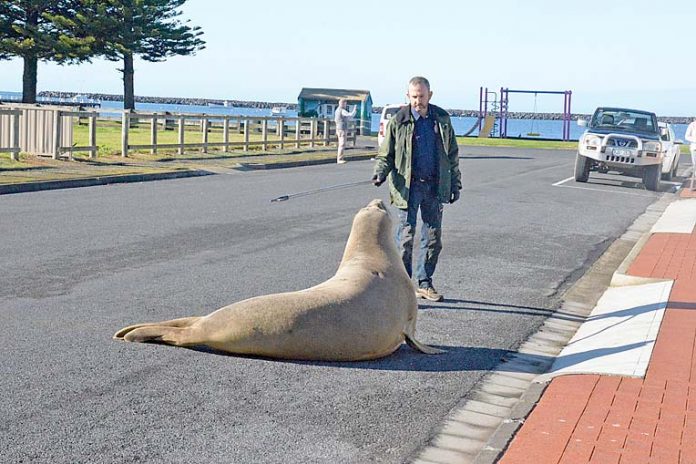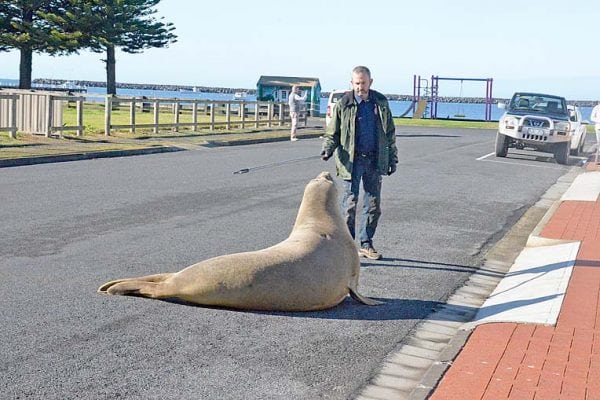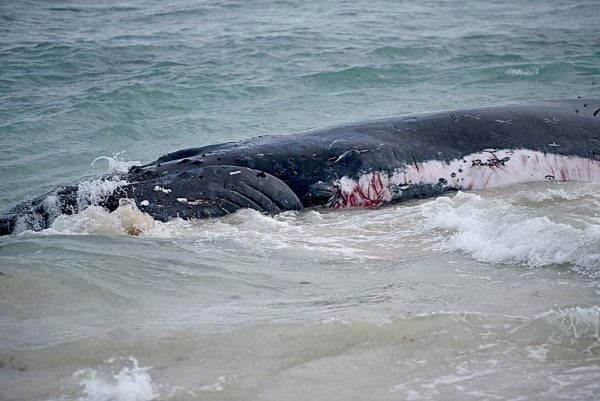

WHILE an elephant seal and a beached whale both sparked public interest in the South East in recent weeks, it is now the sharks scouring the shallow waters of Port MacDonnell that are causing the most concern.
As the dead whale continues to decompose on one of the region’s popular surf beaches, a number of shark sightings in the area have alarmed the public.
Community ranger Dale Millar said he had not sighted a shark in his visits to the area, but he has no doubt they are around.
“Sharks are coming in to feed on the whale, that is probably why there has been a high number of sightings in the area,” Mr Millar said.
Mr Millar said a chain reaction caused by the whale resulting in more sharks may be the reason the female elephant seal ventured into uncharted territory on Tuesday.
“It is a possibility the sharks might be pushing seals in by chasing them around,” Mr Millar said.
“The elephant seal on Tuesday definitely didn’t want to go back in the water when I was ushering her back and then she was apparently spotted again further up the beach a day later, so something is keeping her out.”
Avid surfer Terry Frost said the shark sightings have deterred him from surfing in the area, but it will not make him give up the hobby altogether.
“I’m a bit more wary now, because I’ve seen them around myself, so I would prefer to go up to Beachport and surf a bit further away,” Mr Frost said.
“I know a lot of the other regular surfers are still heading down to Cape Douglas and Post Office Rock because they are quite popular spots.”

A combination of the whale, fishermen’s sightings and personal experiences are enough to keep Mr Frost alert while in the water.
“I had something bump my board once while I was surfing and then obviously all these reports of huge sharks, it makes you think about it,” Mr Frost said.
Legislation to conserve great white sharks in the late 1990s could be the explanation for why larger versions of the species are being more regularly sighted.
“They have been protected for almost 20 years now and they take around 20 years to mature, which is why we are seeing a lot of big ones,” Mr Frost said.
“The big ones are what do the damage because they are looking for bigger things to eat, so it is a bit of a worry.”
While there are dangers every time you step foot in the water, Mr Frost said you can not lose sight of the fact there are greater risks in many other aspects of life.
“You are still more likely to have a car accident driving down to have a surf than be attacked by a shark,” he said.
“We can also hold onto the fact there hasn’t been a shark attack in the region, so we just have to hope that continues.”







